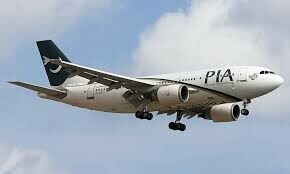The fact that the self-styled Islamic State is drawing fulsome praise from across the militant spectrum is hardly surprising.
After all, the terrorist group’s rapid rise and capture of territory in Iraq and Syria has granted it celebrity status within jihadi circles. So while there may be minor differences between various global militant groups — tactical, theological, level of ferocity — the general consensus seems to be that the IS model of waging ‘jihad’ is a successful one and worthy of replication.
A few days ago, the banned TTP — while still accepting Afghan Taliban supremo Mullah Omar as its spiritual leader — praised all militants in Iraq and Syria, including IS, terming them “noble” and “our brothers”.
Some time ago, pro-IS literature was also reportedly distributed in parts of Khyber Pakhtunkhwa and Fata. Also, the Islamic Movement of Uzbekistan, a fanatical militant outfit responsible for a number of terrorist atrocities inside Pakistan, proclaimed it was “in the same ranks” as the so-called Islamic State.
Nigerian extremist group Boko Haram has expressed warm wishes for IS ‘caliph’ Abu Bakr al-Baghdadi as have some militant outfits in Southeast Asia and North Africa.
While there’s little hard evidence that the above-mentioned statements signify that IS and other militant groups are forging some sort of grand global jihadi alliance, they do appear to be policy statements making the intentions of the militants clear.
They should serve as warning shots, alerting governments the world over to the potential havoc such groups can unleash should they join forces operationally. In many ways, IS is the new Al Qaeda; but considering that it actually holds territory makes the Islamic State even more dangerous than the terrorist franchise.
After all, Al Qaeda was successful because it was provided a safe haven by the erstwhile Taliban rulers of Afghanistan. Should IS consolidate its hold over areas it controls it will serve as a magnet for extremists from across the globe, with the potential to destabilise states across the Middle East and Central Asia, including Pakistan.
While Al Qaeda is now being regarded by many as a spent force, especially after the elimination of Osama bin Laden, IS has many of the trappings of a state and its battlefield successes have made it the talk of the Islamist world. Hence it is essential that governments, especially those of Muslim states, coordinate their efforts to deny IS the chance to operationally link up with sympathetic groups elsewhere.
Published in Dawn, October 9th, 2014










































